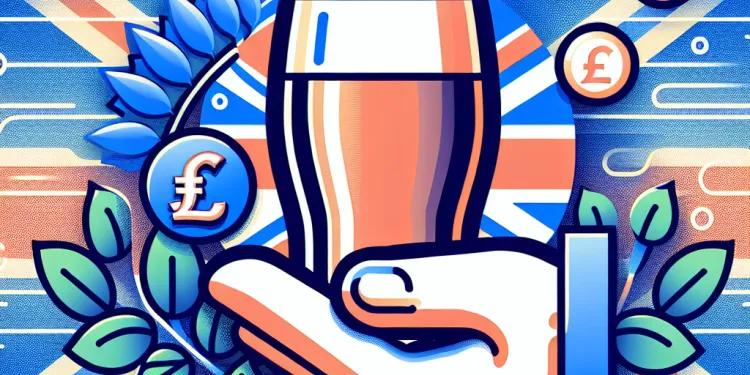
Find Help
More Items From Ergsy search
-

How can I support a friend who believes their drink was spiked?
Relevance: 100%
-
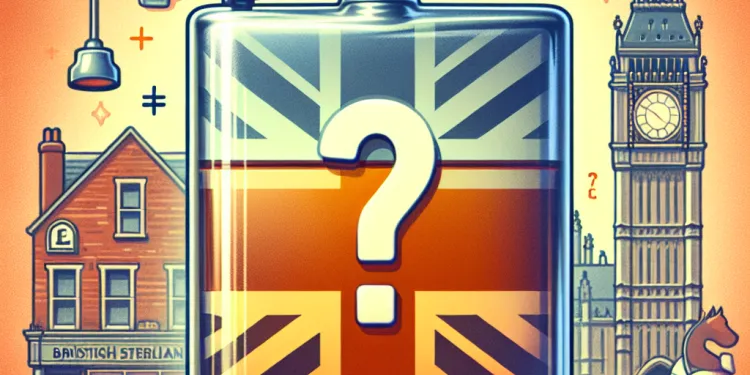
How do I know if my drink was spiked?
Relevance: 79%
-

How can I reduce the risk of my drink being spiked?
Relevance: 76%
-
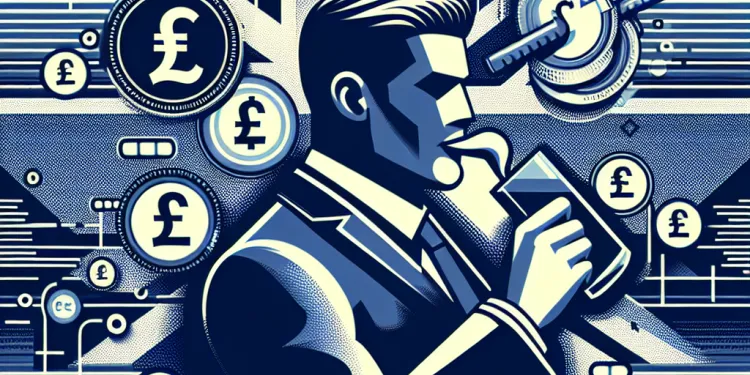
Are men at risk of having their drinks spiked?
Relevance: 73%
-
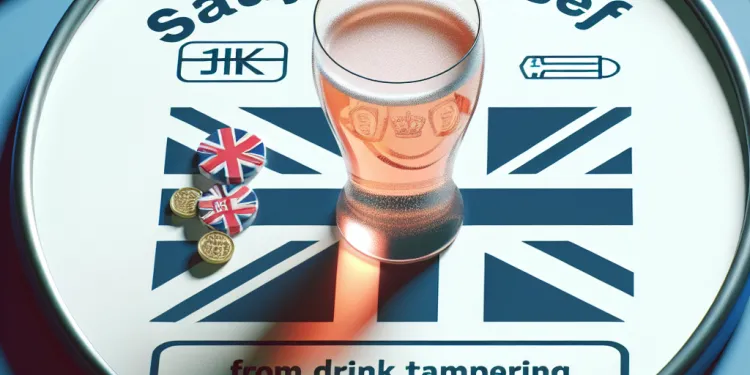
What should I do if I suspect my drink has been spiked?
Relevance: 72%
-
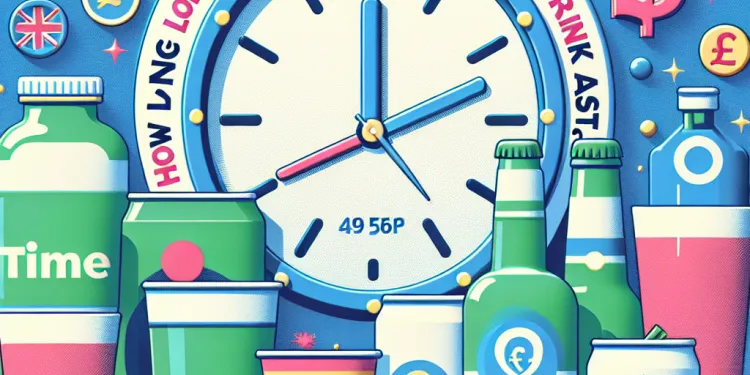
How long do the effects of a spiked drink last?
Relevance: 71%
-

Can drink spiking occur in private settings?
Relevance: 70%
-
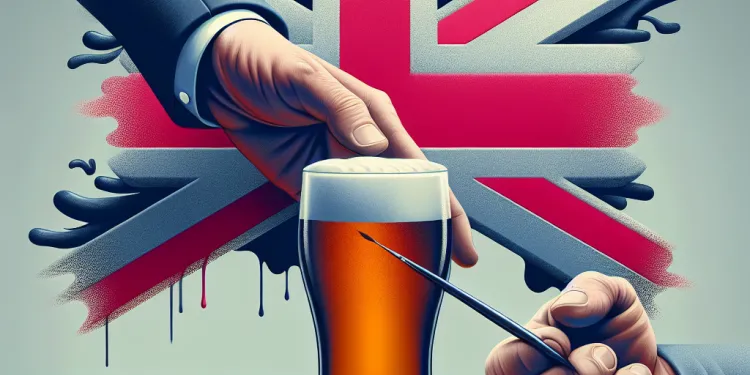
What should I do if I witness someone's drink being spiked?
Relevance: 70%
-

Can I taste or smell if my drink has been spiked?
Relevance: 68%
-

What drugs are commonly used to spike drinks?
Relevance: 67%
-
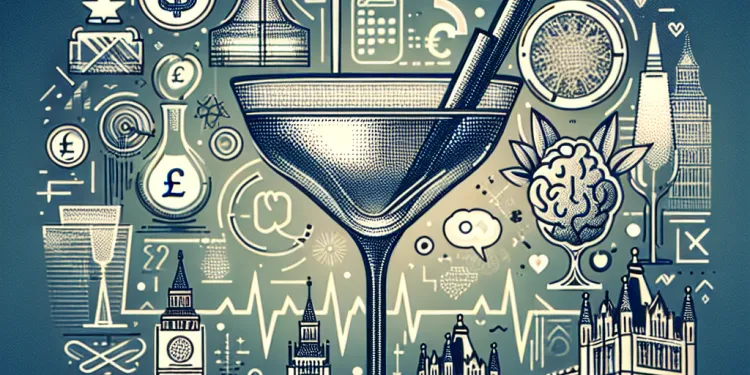
Can drink spiking cause long-term health effects?
Relevance: 67%
-

What are common symptoms if my drink has been spiked?
Relevance: 66%
-

Can drink covers be reused to prevent spiking?
Relevance: 61%
-

How quickly do symptoms appear after a drink has been spiked?
Relevance: 58%
-

Can spiking happen with non-alcoholic drinks?
Relevance: 53%
-

Are there signs bartenders or servers can watch for to prevent spiking?
Relevance: 50%
-

What effects do spiking drugs have on the body?
Relevance: 50%
-
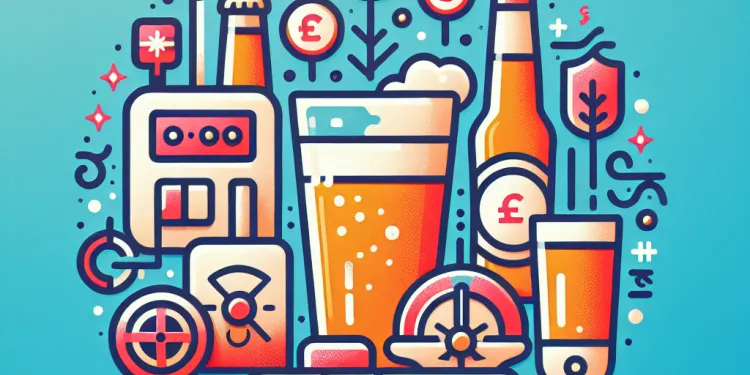
How effective are drink testing kits?
Relevance: 40%
-
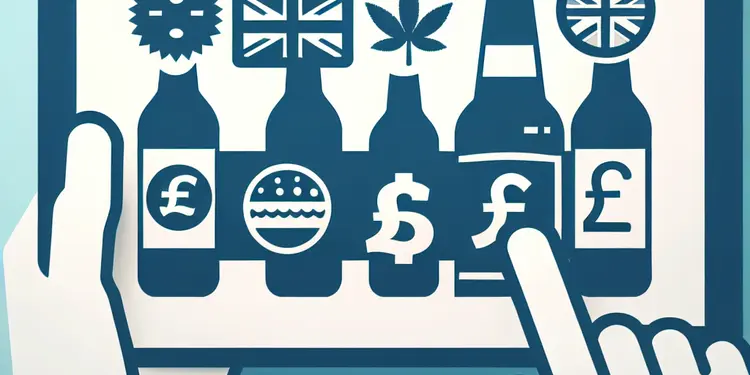
How can one reduce the risk of binge drinking?
Relevance: 40%
-
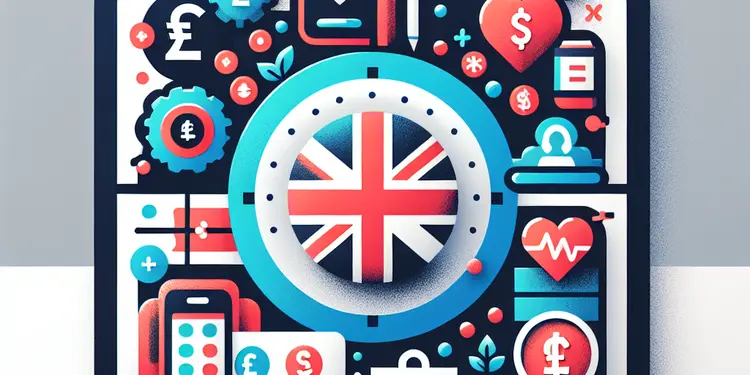
How can family and friends support someone with health-related anxiety?
Relevance: 38%
-
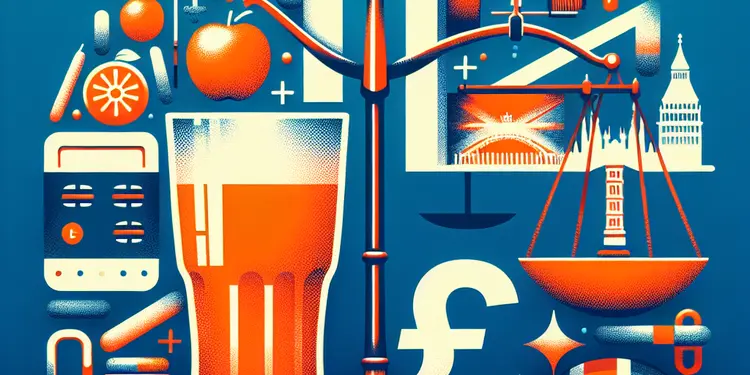
Is it safe to drink orange juice if I have diabetes?
Relevance: 37%
-
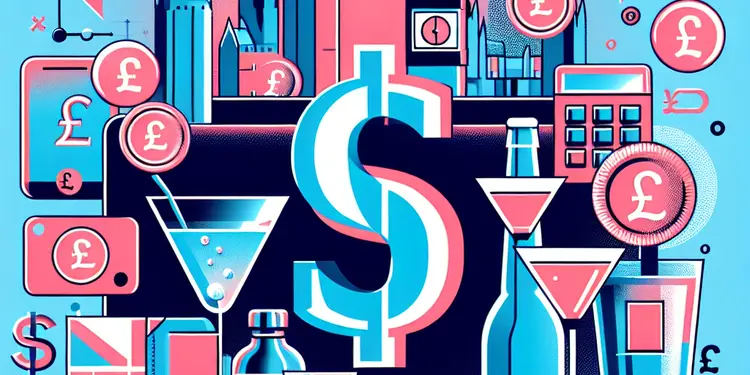
What are the social consequences of binge drinking?
Relevance: 36%
-
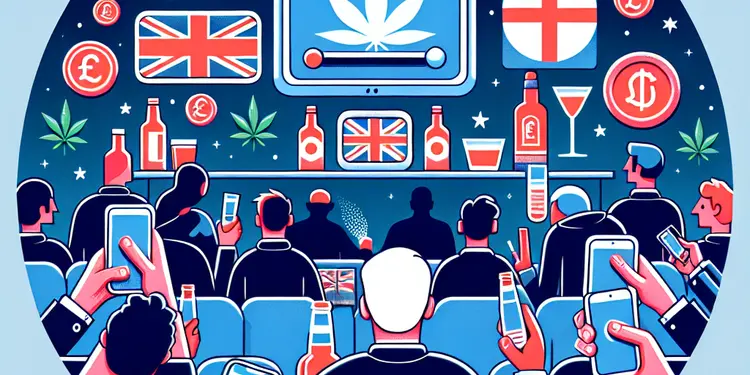
What is the role of peer pressure in binge drinking?
Relevance: 36%
-
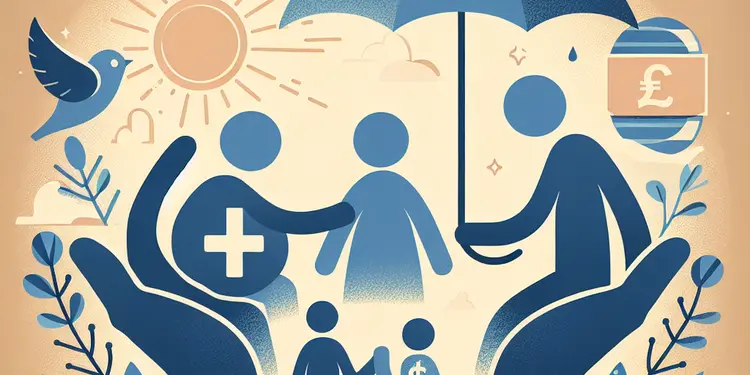
What role do family and friends play in the recovery process?
Relevance: 36%
-
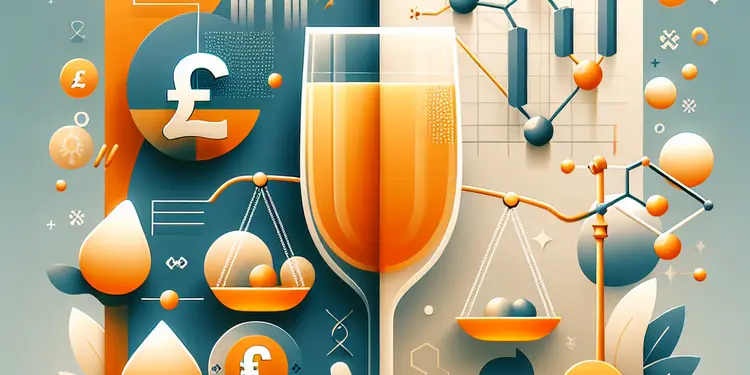
Does drinking orange juice affect blood sugar levels?
Relevance: 35%
-
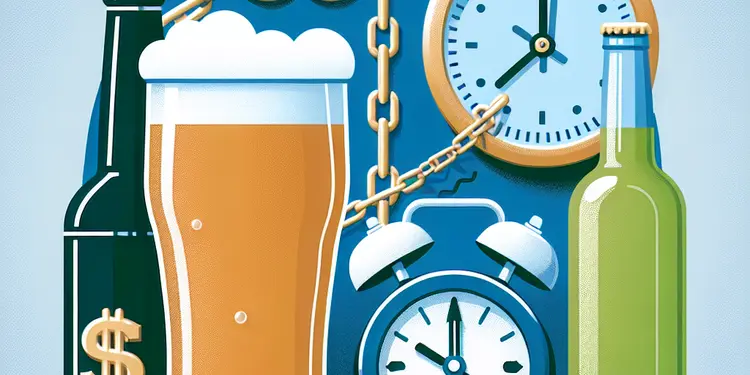
Can binge drinking lead to addiction?
Relevance: 34%
-
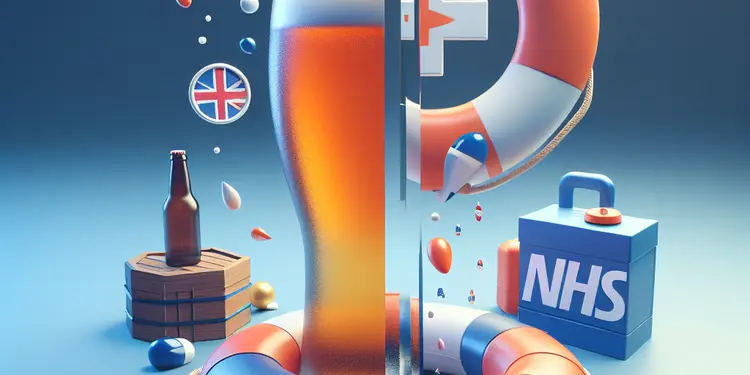
What resources are available for someone struggling with binge drinking?
Relevance: 34%
-

Can I take bereavement leave for the death of a close friend?
Relevance: 34%
-
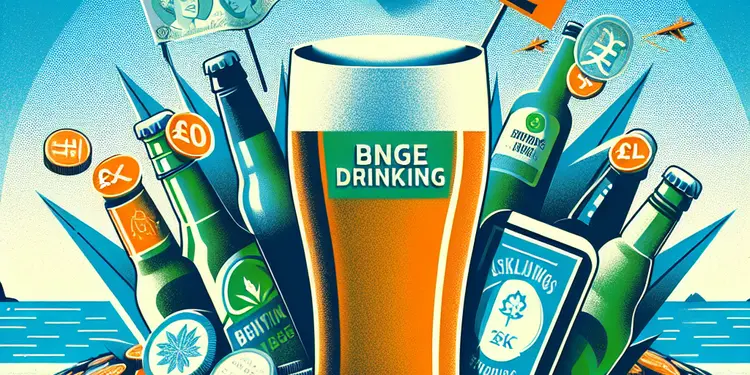
What are the risks associated with binge drinking?
Relevance: 34%
-
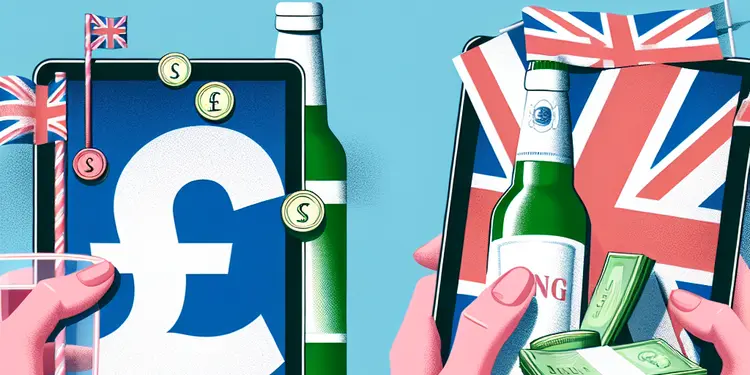
How is binge drinking typically defined?
Relevance: 33%
-
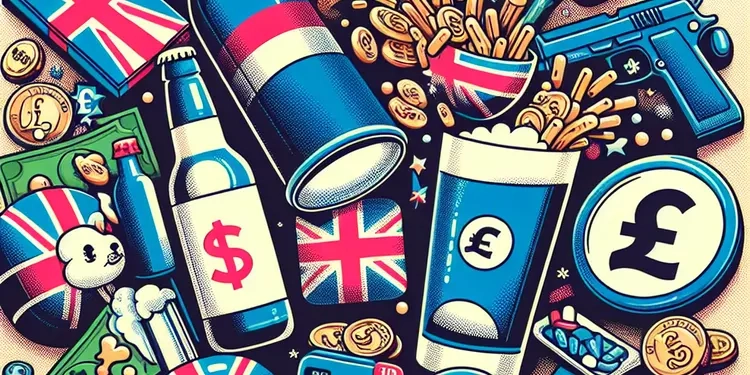
What is binge drinking?
Relevance: 33%
-
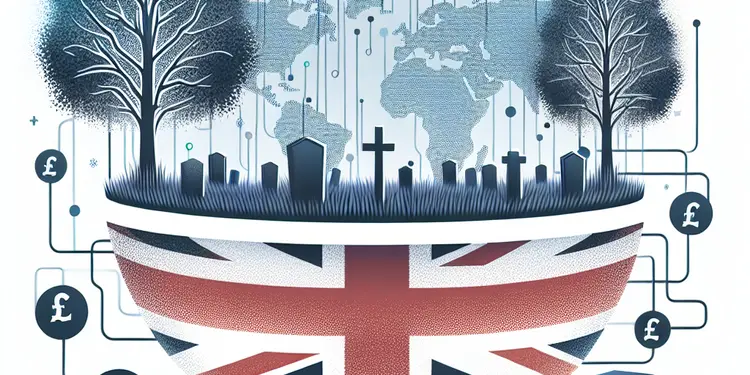
Are woodland burials environmentally friendly?
Relevance: 32%
-
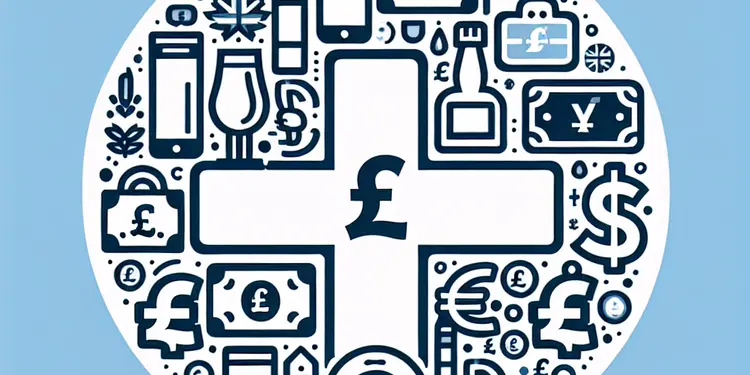
What can be done to prevent binge drinking?
Relevance: 31%
-
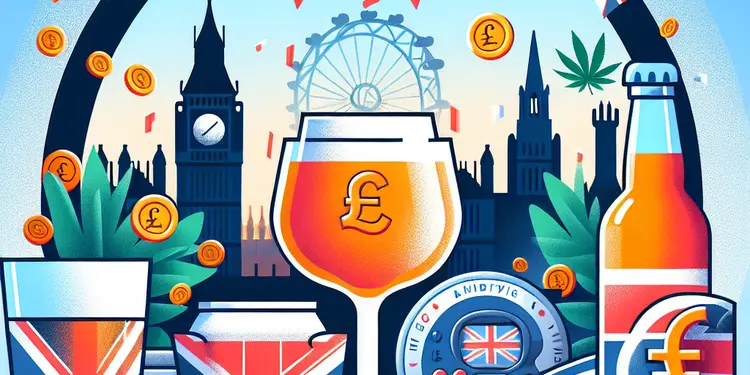
Can binge drinking affect physical health?
Relevance: 30%
-
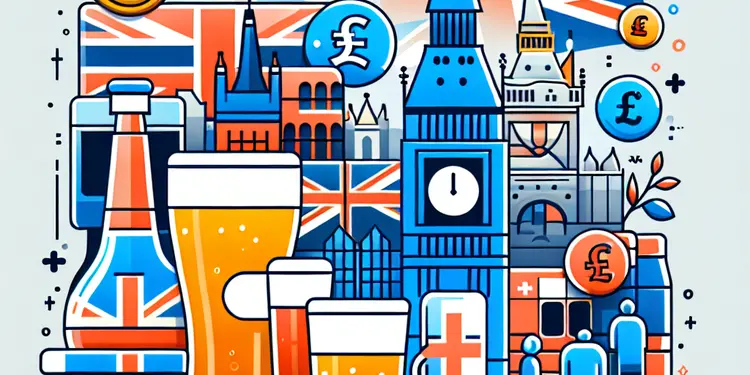
Why is binge drinking common among young adults?
Relevance: 30%
-
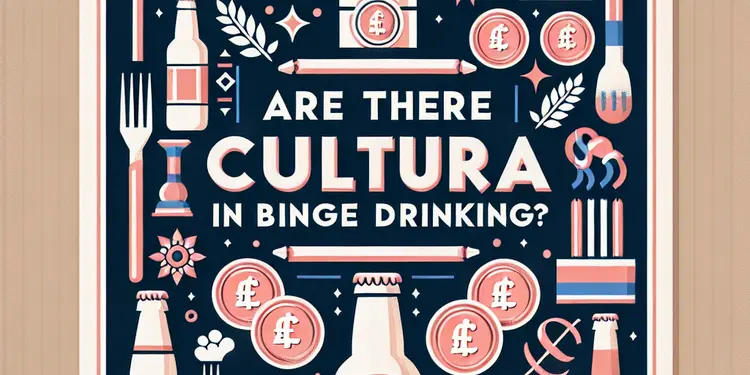
Are there cultural factors in binge drinking?
Relevance: 30%
-
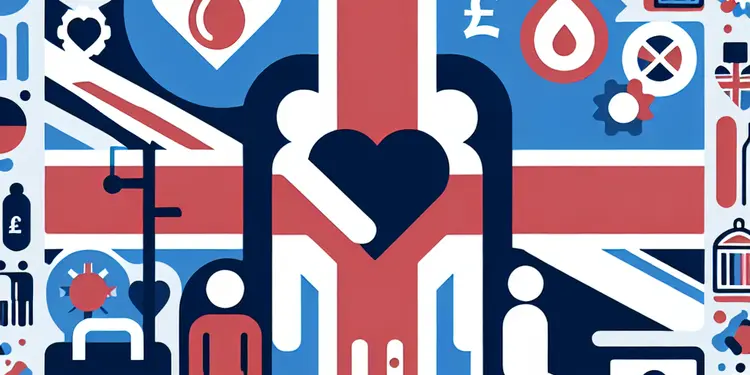
Can you donate blood specifically for a friend or family member?
Relevance: 30%
-
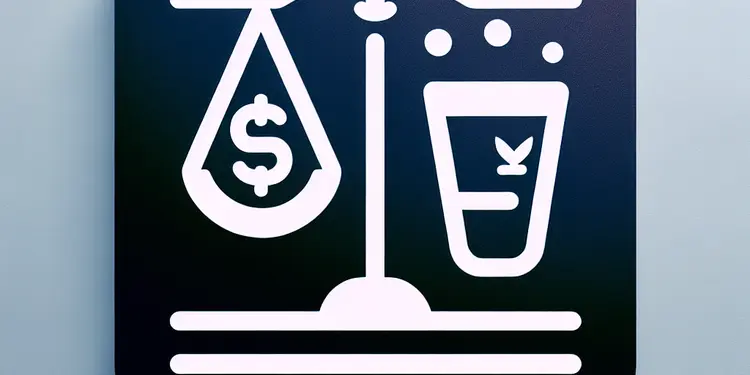
Are there any laws against binge drinking?
Relevance: 29%
-
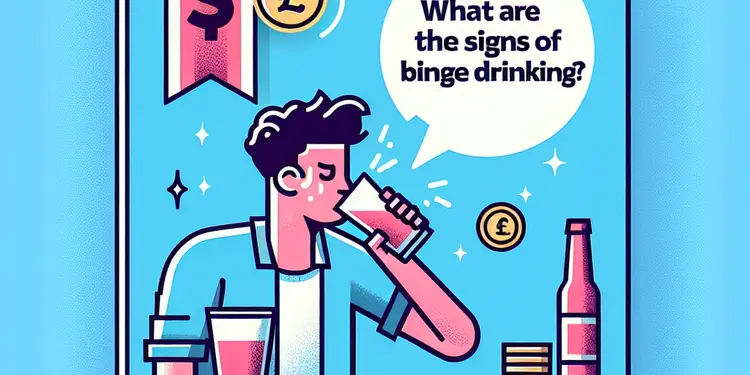
What are the signs of binge drinking?
Relevance: 29%
-
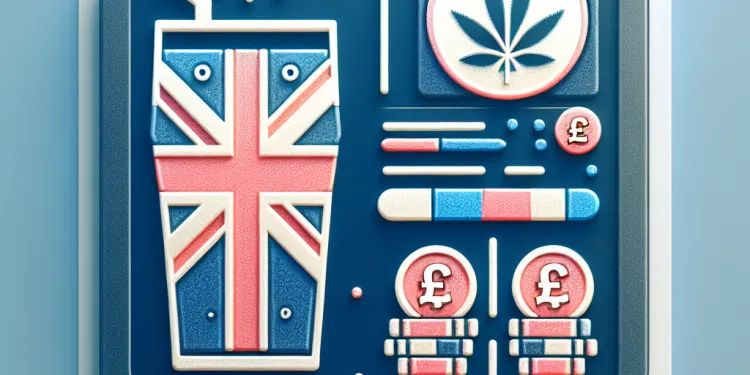
Can I report a suspected drink spiking incident to the police?
Relevance: 29%
Recognising the Signs of Drink Spiking
Drink spiking involves adding substances like drugs or alcohol to a person's drink without their knowledge, which can lead to severe consequences. Common indicators include sudden dizziness, confusion, nausea, hallucinations, or unconsciousness. If a friend suspects their drink has been spiked, it's crucial to take their concerns seriously.
Immediate Actions to Take
Firstly, ensure your friend's safety by removing them from the immediate environment. Stay with them and offer reassurance. It's important to seek medical assistance as soon as possible, as medical professionals can provide necessary care and conduct tests to confirm the presence of any substances. Encourage your friend to avoid consuming more alcohol, as this may exacerbate the effects of the spiked drink.
Reporting the Incident
Encourage your friend to report the incident to the police as soon as they feel comfortable. Drink spiking is a criminal offence in the UK, and reporting it can help prevent future incidents. Encourage them to preserve evidence if possible, such as keeping the drink in question and recalling any details about the location, time, and people present.
Emotional Support
It's important to offer emotional support to your friend following such a distressing experience. Listen to them without judgment, and validate their feelings. Ensure they know it wasn't their fault. Encourage them to talk to a professional counselor if they're struggling emotionally after the incident.
Preventative Measures
While it's never the victim's responsibility to prevent drink spiking, discussing ways to reduce risk can be helpful. Suggest staying vigilant with their drinks, never leaving them unattended, and keeping an eye on each other's beverages during social gatherings. Using drink deterrents like bottle stops or unique glass covers can also provide some peace of mind.
Encouraging Community Awareness
Engage with local initiatives aimed at raising awareness about drink spiking. Supporting campaigns and educational programs can empower individuals and communities to speak out and take preventive measures. Encourage your friend to participate if they're comfortable, as this can also aid in their healing process.
Conclusion
Supporting a friend who believes their drink was spiked involves ensuring their immediate safety, encouraging them to report the incident, offering emotional support, and promoting awareness. As a community, staying informed and vigilant can help create a safer environment for everyone.
Seeing the Signs of Drink Spiking
Drink spiking means someone puts drugs or extra alcohol in another person's drink without them knowing. This can be very dangerous. Signs include feeling dizzy, confused, sick, seeing things that aren't there, or passing out. If your friend thinks their drink has been spiked, it's important to listen to them and believe them.
What to Do Right Away
First, make sure your friend is safe. Take them away from where they are. Stay with them and tell them it will be okay. Call a doctor or go to the hospital fast. Doctors can check and help if there are bad things in their drink. Tell your friend not to drink more alcohol, because it could make things worse.
Telling the Police
Ask your friend to tell the police when they feel ready. Spiking drinks is against the law in the UK. Telling the police can help stop it from happening again. If possible, keep the drink that was spiked and remember any details like where you were, what time it was, and who was there.
Helping Feel Better
It is important to help your friend feel better after a scary time like this. Listen well and don't judge. Tell them it is not their fault. If they are feeling very upset, they can talk to a counselor who can help.
Staying Safe
It's not your friend's fault if a drink gets spiked, but talking about ways to be safer can help. Watch over their drinks, don't leave them alone, and look after each other's drinks during parties. Using bottle tops or covers for drinks can help them feel safer.
Helping Your Community
Get involved in local groups that talk about drink spiking. Support programs that teach people about it. Encouraging your friend to join can help them heal too.
Conclusion
Helping a friend who thinks their drink was spiked means keeping them safe, telling the police, giving support, and spreading the word. Staying alert and informed can make your community a safer place for everyone.
Frequently Asked Questions
What are the signs that someone's drink may have been spiked?
Signs may include sudden dizziness, confusion, poor coordination, slurred speech, memory loss, or unusual behavior.
How can I support my friend immediately after they suspect their drink was spiked?
Stay with them, keep them calm, and ensure they feel safe. Encourage them to drink water and avoid consuming more alcohol.
Should I take my friend to a hospital or call emergency services if their drink was spiked?
Yes, if they are feeling very unwell, losing consciousness, or expressing extreme symptoms, it's important to seek medical help immediately.
How can I help my friend report the incident?
Encourage them to report the incident to local authorities. Offer to accompany them or support them as they contact law enforcement.
What information should I gather regarding the incident?
Try to note down the time, location, any suspicious individuals or activities, and any potential witnesses who might help in the investigation.
Is it important to preserve evidence if a drink was spiked?
Yes, if possible, save the drink or report the details to the establishment staff to help authorities with the investigation.
What support can I offer my friend the day after the incident?
Check in on them and offer emotional support. Encourage them to rest, hydrate, and report any aftereffects to a healthcare provider.
Can I help my friend prevent drink spiking in the future?
Offer tips like never leaving drinks unattended, keeping an eye on each other's beverages, and being cautious about accepting drinks from strangers.
Should I inform venue staff if a friend's drink was spiked?
Yes, notifying the venue staff can alert them to potential dangers and help protect others.
What emotional support can I give to someone who's experienced drink spiking?
Listen to their feelings, validate their emotions, and remind them it's not their fault. Encourage seeking professional support if needed.
How can I help dispel myths about drink spiking with my friend?
Educate them about facts: anyone can be a victim, not all spiking involves drugs, and it's never the victim's fault.
What should be avoided when supporting a friend who believes their drink was spiked?
Avoid blaming them, minimizing their experience, or dismissing their feelings.
Can I encourage my friend to contact a support group?
Yes, there are support groups for victims of drink spiking and sexual assault that can provide further assistance and validation.
What should I do if my friend doesn't want to report the incident?
Respect their decision while gently encouraging them to consider the benefits of reporting, such as preventing future incidents.
How can friends look out for each other in social settings to prevent drink spiking?
Stick together, check in regularly, watch each other's drinks, and leave together when possible.
Is there a way to test for drugs if someone's drink is spiked?
Some venues or security may have testing kits, but the most reliable results come from medical testing at a hospital.
Why is it critical to act quickly if drink spiking is suspected?
Drugs can have powerful effects quickly, and acting fast can prevent harm and preserve evidence for authorities.
What safety precautions can be taken in venues to minimize the risk of drink spiking?
Encourage venues to have good lighting, visible security, and awareness campaigns on drink safety.
Can certain types of drinks be higher risk for spiking?
All drinks can potentially be spiked, but those left unattended or given by strangers should be treated with caution.
How should I talk to my friend about their experience without making them uncomfortable?
Approach the conversation with empathy, offer a listening ear, and let them lead the discussion about what they experienced.
How can you tell if someone put something bad in a drink?
Signs might be feeling dizzy suddenly, getting confused, moving clumsily, talking funny, forgetting things, or acting in a strange way.
How can I help my friend if they think someone put something in their drink?
Stay with your friend. Help them stay calm. Make sure they feel safe. Tell them to drink water. Ask them not to drink more alcohol.
What should I do if someone's drink has been spiked?
If you think your friend's drink was spiked, stay calm. Here’s how to help:
- Call for help. Dial 911 or the emergency number in your area.
- Keep your friend safe. Stay with them and make sure they are comfortable.
- Tell someone nearby, like a security guard or staff member.
- If they feel very sick or pass out, take them to the hospital right away.
- You can use a special phone app to find help quickly.
If someone is feeling very sick, about to faint, or showing very strong symptoms, it's important to get medical help right away.
How can I help my friend tell someone about what happened?
Ask them to tell the police about what happened. You can go with them or help them talk to the police.
What should I find out about what happened?
Write down the time and place. Say if you see someone or something strange. Look for people who saw what happened so they can help.
Should you keep proof if someone put something in your drink?
Yes, it is very important to keep proof if someone put something in your drink.
If you think this happened, tell someone you trust. They can help you remember what to do.
Keep the drink and bottle. Do not throw them away. They can help show what happened.
You can also write down everything you remember. Tell someone you trust or a helper to write for you.
Use apps on a phone if it helps you remember and keep notes.
Yes, if you can, keep the drink or tell the workers at the place about it. This helps the police with their work.
How can I help my friend the day after it happened?
Here are some ways you can help your friend:
- Listen: Let your friend talk about how they feel.
- Be there: Stay close and let them know they are not alone.
- Comfort: Give them a hug or a kind word to show you care.
- Be patient: Give them time to feel better.
- Ask: See if there is anything they need or want.
These things can help your friend feel a little better.
See how they are doing and be there to support them. Tell them to rest, drink water, and tell a doctor or nurse how they feel.
How can I help my friend stay safe from someone putting things in their drink?
You can help your friend by being careful and watching out when you go out together. Here are some tips:
- Stay close to your friend and keep an eye on their drink.
- Tell your friend to never leave their drink alone.
- If they have to leave their drink, suggest getting a new one.
- Encourage using a straw cover to protect the drink.
It's important to look out for each other to stay safe.
Here are some tips: Don’t leave your drink alone. Watch each other's drinks. Be careful about drinks from people you don’t know.
What should I do if I think someone put something bad in my friend's drink?
Yes, telling the staff at the place can warn them about dangers and keep people safe.
How can I help someone who had their drink spiked?
If someone had their drink spiked, they might feel scared or upset. You can help them feel better. Here are some ways:
- Listen: Let them talk about their feelings. Tell them you are there for them.
- Believe them: Show them that you believe what they say. This can make them feel safer.
- Stay close: Be with them so they are not alone. Your company can comfort them.
- Support them: Offer to go with them to talk to a doctor or the police.
- Help them relax: Encourage things like slow breathing to help them calm down.
- Give them time: Understand that it might take time for them to feel better.
Remember, being there and showing you care is really helpful.
Listen when they talk about how they feel. Tell them it's okay to feel that way. Remind them it's not their fault. Suggest talking to a doctor or a counselor if they need more help.
How can I talk to my friend about drink spiking myths?
Here is a simple way to talk to your friend about drink spiking:
1. Explain what drink spiking is: It means putting something in a drink without asking.
2. Share the facts: Tell them it can be very dangerous and can happen to anyone.
3. Listen to their worries: Ask if they have any questions or are afraid.
4. Use easy words: Talk in a simple way they can understand.
5. Watch videos together: Find videos online that explain drink spiking.
6. Practice using questions: Help them by asking what they would do if it happens.
You can help your friend learn the truth with these steps.
Teach them the facts: anyone can have their drink spiked, not all spiking uses drugs, and it is never the victim's fault.
What to avoid when helping a friend who thinks their drink was spiked
When helping your friend, do not:
- Tell them they are wrong or not believe them.
- Leave them alone.
- Make them feel bad about what happened.
It is important to listen, stay with them, and support them. You can offer to call someone for help or get them to a safe place.
Don't say it's their fault. Listen to them and don't say their feelings are not important.
How can I help my friend talk to a support group?
Yes, there are groups to help people who have been hurt by drink spiking and sexual assault. These groups can offer support and make you feel understood.
What can I do if my friend doesn't want to tell someone about what happened?
Sometimes, your friend might not want to talk about what happened. Here are some things you can do to help:
- Listen to your friend and let them know you care.
- Tell them it's okay to feel scared or upset.
- Say they can talk to a trusted adult, like a teacher or family member.
- Help them find ways to feel safe.
- Encourage them to use words or drawings to express their feelings.
It can help to talk to someone who knows about these things too.
Respect what they want, but also gently talk to them about why telling someone can be good. It can help stop bad things from happening again in the future.
How can friends keep each other safe from drink spiking?
When you go out with friends, it's important to watch out for each other. Here’s how you can help keep your drinks safe:
- Stay Together: Try to stay close to your friends. It’s easier to look after each other when you’re together.
- Watch Your Drinks: Keep an eye on your drinks. Don’t leave them alone or let someone you don’t know hold them.
- Use a Lid or Cover: Use a lid or cover on your drink when you’re not drinking from it. This helps stop anything from being put in your drink.
- Talk to Your Friends: Let your friends know if you feel strange or unwell. It’s important to tell someone right away.
- Be Aware: Look around and see what’s happening. If you see something that doesn’t feel right, talk to your friends about it.
- Help Each Other: Make sure your friends get home safely. You can call a taxi or go with them.
Remember, friends are there to help keep each other safe. Use tools like phone apps to stay connected or plan ahead by setting meeting spots in case you get separated. Staying alert and being there for each other is important.
Stay with your friends. Talk to each other often. Look after each other's drinks. Try to leave together if you can.
Can you check if a drink has drugs in it?
If you think someone put drugs in your drink, you can find out.
Here are some ways:
- Use test strips. These special strips can show if there are drugs in the drink.
- Go to the hospital. Doctors can help and do tests on your body.
- Call the police. They can test the drink for drugs too.
If you are ever worried, it is important to tell someone you trust.
Some places or security might have test kits, but the best results come from a doctor at a hospital.
Why is it important to act fast if you think someone put something in a drink?
If you think someone put something in a drink, act fast.
- Get help right away. Call someone you trust.
- Tell a staff member where you are, like a waiter or security.
- Call emergency services if needed.
It is important to stay safe. Stay with friends and drink only what you know is safe.
Drugs can work very fast. It's important to act quickly. This can keep people safe and help police find out what happened.
How can places stay safe from drink spiking?
Here are some ways to help keep drinks safe:
- Always stay with your drink. Don't leave it alone.
- If you can, watch your drink being made.
- Cover your drink with your hand when you can.
- Go with friends and look out for each other.
- If your drink looks or tastes strange, don't drink it.
Using special lids or covers can help. They keep your drink safe.
Ask places to have bright lights, security people you can see, and signs or talks about keeping drinks safe.
Are some drinks more likely to be spiked?
Someone might put something bad in any drink. Be careful with drinks you leave alone or if a stranger gives you a drink.
How can I talk to my friend about their experience without upsetting them?
- Be kind and gentle.
- Ask if they are okay to talk first.
- Listen carefully and don't interrupt.
- Use simple words.
- Say, "It's okay if you don't want to talk about it."
You can also try using pictures or toys to help your friend share their story.
Be kind and caring when you talk. Listen to them and let them decide what they want to say about their experience.
Useful Links
This website offers general information and is not a substitute for professional advice.
Always seek guidance from qualified professionals.
If you have any medical concerns or need urgent help, contact a healthcare professional or emergency services immediately.
Some of this content was generated with AI assistance. We’ve done our best to keep it accurate, helpful, and human-friendly.
- Ergsy carfully checks the information in the videos we provide here.
- Videos shown by Youtube after a video has completed, have NOT been reviewed by ERGSY.
- To view, click the arrow in centre of video.
- Most of the videos you find here will have subtitles and/or closed captions available.
- You may need to turn these on, and choose your preferred language.
- Go to the video you'd like to watch.
- If closed captions (CC) are available, settings will be visible on the bottom right of the video player.
- To turn on Captions, click settings .
- To turn off Captions, click settings again.
More Items From Ergsy search
-

How can I support a friend who believes their drink was spiked?
Relevance: 100%
-

How do I know if my drink was spiked?
Relevance: 79%
-

How can I reduce the risk of my drink being spiked?
Relevance: 76%
-

Are men at risk of having their drinks spiked?
Relevance: 73%
-

What should I do if I suspect my drink has been spiked?
Relevance: 72%
-

How long do the effects of a spiked drink last?
Relevance: 71%
-

Can drink spiking occur in private settings?
Relevance: 70%
-

What should I do if I witness someone's drink being spiked?
Relevance: 70%
-

Can I taste or smell if my drink has been spiked?
Relevance: 68%
-

What drugs are commonly used to spike drinks?
Relevance: 67%
-

Can drink spiking cause long-term health effects?
Relevance: 67%
-

What are common symptoms if my drink has been spiked?
Relevance: 66%
-

Can drink covers be reused to prevent spiking?
Relevance: 61%
-

How quickly do symptoms appear after a drink has been spiked?
Relevance: 58%
-

Can spiking happen with non-alcoholic drinks?
Relevance: 53%
-

Are there signs bartenders or servers can watch for to prevent spiking?
Relevance: 50%
-

What effects do spiking drugs have on the body?
Relevance: 50%
-

How effective are drink testing kits?
Relevance: 40%
-

How can one reduce the risk of binge drinking?
Relevance: 40%
-

How can family and friends support someone with health-related anxiety?
Relevance: 38%
-

Is it safe to drink orange juice if I have diabetes?
Relevance: 37%
-

What are the social consequences of binge drinking?
Relevance: 36%
-

What is the role of peer pressure in binge drinking?
Relevance: 36%
-

What role do family and friends play in the recovery process?
Relevance: 36%
-

Does drinking orange juice affect blood sugar levels?
Relevance: 35%
-

Can binge drinking lead to addiction?
Relevance: 34%
-

What resources are available for someone struggling with binge drinking?
Relevance: 34%
-

Can I take bereavement leave for the death of a close friend?
Relevance: 34%
-

What are the risks associated with binge drinking?
Relevance: 34%
-

How is binge drinking typically defined?
Relevance: 33%
-

What is binge drinking?
Relevance: 33%
-

Are woodland burials environmentally friendly?
Relevance: 32%
-

What can be done to prevent binge drinking?
Relevance: 31%
-

Can binge drinking affect physical health?
Relevance: 30%
-

Why is binge drinking common among young adults?
Relevance: 30%
-

Are there cultural factors in binge drinking?
Relevance: 30%
-

Can you donate blood specifically for a friend or family member?
Relevance: 30%
-

Are there any laws against binge drinking?
Relevance: 29%
-

What are the signs of binge drinking?
Relevance: 29%
-

Can I report a suspected drink spiking incident to the police?
Relevance: 29%


